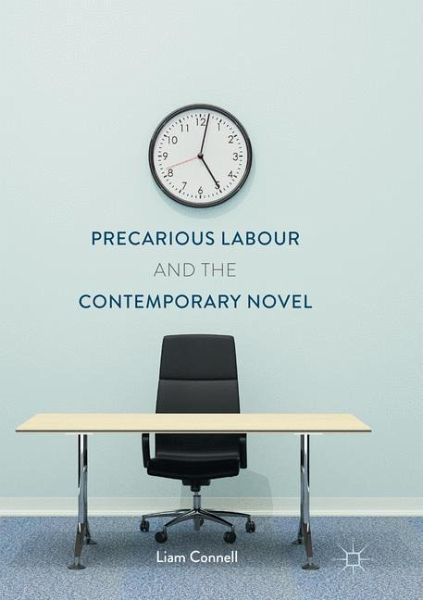
Precarious Labour and the Contemporary Novel
Versandkostenfrei!
Versandfertig in 6-10 Tagen
65,99 €
inkl. MwSt.
Weitere Ausgaben:

PAYBACK Punkte
33 °P sammeln!
This book is a major study of the presentation of work and workers in contemporary novels from India, North America and the UK. Drawing on lively recent theories about work, it shows how the novel is a crucial form for helping us to understand what work means in contemporary society. It tackles some of the most urgent questions of contemporary life by examining the stories about work that novels produce. Including detailed readings of authors such as Douglas Coupland, David Foster Wallace, Joshua Ferris, Arivand Adiga, Chetan Bhagat and Monica Ali it explores how the presentation of fictional ...
This book is a major study of the presentation of work and workers in contemporary novels from India, North America and the UK. Drawing on lively recent theories about work, it shows how the novel is a crucial form for helping us to understand what work means in contemporary society. It tackles some of the most urgent questions of contemporary life by examining the stories about work that novels produce. Including detailed readings of authors such as Douglas Coupland, David Foster Wallace, Joshua Ferris, Arivand Adiga, Chetan Bhagat and Monica Ali it explores how the presentation of fictional characters lays open the experience of insecure and precarious existence in the contemporary era. This study illustrates that novels provide an essential tool for understanding what work is and how we feel when we do it.














